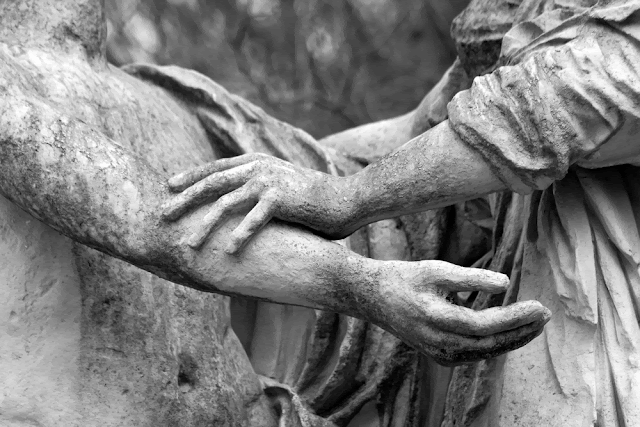“Tu pun Berita Manah pasal Jesus Kristus, ti Anak Allah
Taala. Munyi ti ditulis dalam bup nabi Isaiah, ‘Ku Allah Taala bejaku, ‘Dinga! Aku ngirumka seruan Aku dulu ari Nuan;
iya deka nyediaka jalai ke Nuan.’ Siku orang ngagau di menua puang: ‘Sediaka jalai
ke Tuhan; Gaga jalai Iya rurus!’’ John Pemaptisa pegari di menua puang,
madahka pemaptisa nesal ati ke pengampun dosa. Semua orang ari serata menua
Judea, enggau ari Jerusalem mansang ngagai iya. Sida ngaku dosa sida, lalu iya
maptisa sida ba Sungai Jordan. Gari John digaga ari bulu unta, lalu belulang ti
melit punggung iya digaga ari kulit jelu. Lalu pemakai iya buntak enggau ai
manyi. Ku iya madah ngagai orang mayuh, ‘Iya
ke datai dudi ari aku lebih agi bekuasa ari aku, datai ke aku enda tau meremi lalu
muka tali kasut Iya. Aku udah maptisa kita ngena ai, tang Iya deka maptisa kita
ngena Roh Kudus’”
(Mark 1:1-8,
Bup Kudus Baru).
Enti Raja empu deka datai tentu seruan iya datai dulu
lalu nyedia ka jalai, madah ka orang bakani patut nyendia diri. Iya muai
penanggol dulu. Nya meh pengawa John Pemaptisa. Raja ti besai nyau ka datai, ti udah ditulis bala
nabi beribu-ribu taun dulu. Dikumbai sida “Messiah”
tauka “Kristus.” Iya ka niri ka
Perintah Allah Taala di dunya tu, ngasoh samoa bansa nyadi rakyat Iya, ti nitih
ka pesan Raja. John, nabi ti pengabis ujong, lalu pengabis besai – Seruan
Kristus empu.
“Gari
John digaga ari bulu unta, lalu belulang ti melit punggung iya digaga ari kulit
jelu. Lalu pemakai iya buntak enggau ai manyi (madu).” Pemakai
iya semina chukup ngidup ka diri aja. Iya enda ingin sekali ka utai dunya. Iya
ingin ka utai ti besai agi – nyedia ka orang ka penatai Jesus, Anak Allah
Taala, iya nya Kristus. Nagang pengingin tuboh kitai, nya siti jalai ngalah ka
lalu ngerusak mayoh bengkah penyai. John baka nabi Elijah kelia, ti ngerusak
adat Baal, petara kapir, serta enggau imam Baal 40 iko. Baka Elijah mega John
ngerusak pendiau kapir ba orang Juda.
John muai penanggol. Lalu
penanggol ti besai ari semoa iya nya dosa. “Nesal ati ke
dosa kita, laban Perintah serega nyau semak!” (Matthew 3:2). “Semua orang ari serata menua Judea, enggau ari
Jerusalem mansang ngagai iya. Sida ngaku dosa sida, lalu iya maptisa sida ba
Sungai Jordan.” Iya nyepoh ka sida dalam ai. Udah nya iya ngangkat
ka sida baru ari ai. Nya tanda sida
ninggal ka pendiau lama ti jai lalu bulih pendiau ti baru ti tuchi.
Pia kitai mega diasoh
berubah, nitih ka jalai baru lalu nyadi orang baru. Enti kitai baka nya, Tuhan
kitai ka amat datai (Tuhan nang udai datai dulu). Datai dini? Ba ati kitai, ba
runding enggau pengawa kitai, ba rumah, ba bilik kitai, ba dunya kitai, ba
pengidup kitai, nyadi Raja amat. Suah minta Tuhan Yesus Kristus datai ngambi ka
megai nuan amat-amat. Tang kati penanggol udah dibuai ari ati nuan? Iya nya dosa?
Sembiang
Datai O Jesus, dalam ati aku! Amat bisi mayoh macham
penyai ti nanggol penatai Nuan.
Buai nya, Tuhan, lalu pegai ati aku, pegai pendiau
aku, nuan ti Messiah, Kristus Tuhan aku.
Aku deka bulih pendiau ti baru. Amen.
THINK BIG.
START SMALL. GO DEEP.
Diambik, disemak, disalin
ngau diubah ulih aku ari Mending Ka
Tuhan: Berati ka Injil St Mark
Ditusun ulih F.A. Vergeer
M.H.M.
Imprimatur: Rt. Rev.
Bishop Dominic Su, D.D., Januari, 1996.
Dikeluar ulih: Diocesan
Centre, 1, Lanang Road, P.O. Box 495, 96007 Sibu, Sarawak.

































